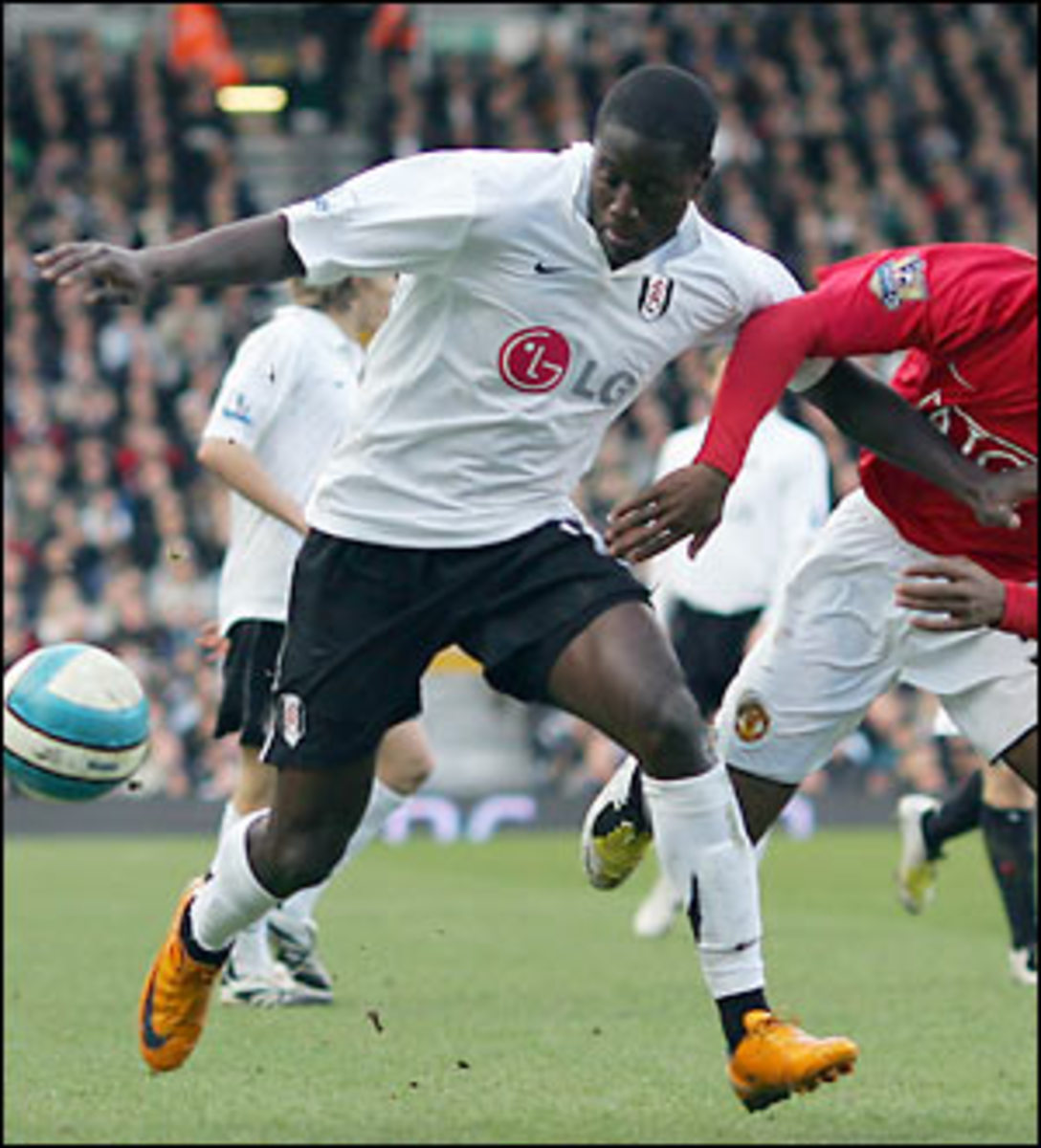Go abroad, young Yank
But there are no Americans.
Wow, I thought. I knew this was the case, but seeing it in writing really bummed me out.
Because when it comes to Americans playing in Europe, I'm generally optimistic. Actually not just generally, overwhelmingly. I believe in "the American player" -- regardless of the cacophony of naysayers I encounter every time I set foot in a foreign land. I believe he can compete at the highest levels if given the opportunity, believe that he can be not only a member, but also a star on a major European side.
So it kills me to look at the English Premier League standings these days and see the so-called American teams -- Fulham, Reading and Derby County -- wallowing in the muddy misery of the relegation zone.
How did this happen? How did nine of the 12 Americans playing regularly in the EPL wind up on clubs struggling for points and respect? And what does this say about the enigmatic "American player?"
The elephant-in-the-room question is: Are these clubs struggling because of their American contingents or in spite of them? Fulham has five Yanks, the largest bloc on its roster other than Brits, and yet the Cottagers have just one victory in their last 16 matches. If I were a Fulham fan -- which I'm not, other than in support of the Americans at Craven Cottage -- I'd start to wonder if there is a correlation.
This is precisely where my concern comes in. Because in soccer, where you come from matters.
If you are Brazilian, you are expected to be creative and artistic and have flair. If you are Italian, you are tactical and deadly on the counterattack. If you are Ivorian, you are fast and powerful.
These stereotypes are nonsense, of course, because for every Ronaldinho, there is a Lúcio, and for every Didier Drogba, there is a Salomon Kalou. But they exist in the fans' minds, and it's the fans, ultimately, who dictate the direction of the club -- with their purchasing power. If the fans don't like the product on the field, they're not going to buy tickets, scarves and alternate third jerseys.
Which could cause problems if those fans start to see a direct link between the failures of their clubs and the number of Americans on the roster.
I remember an interview Tim Howard gave soon after he made the jump from MLS to Manchester United. He lamented about how, when he did something well, the fans and media would say, "Great save by the talented keeper" -- when he stumbled, they would say, "dreadful mistake by the American." The phrase "American soccer player" still has negative connotations in many concrete minds.
Obviously Howard, like Blackburn goalkeeper Brad Friedel before him, has learned to cope with these kinds of digs. The Everton keeper is in blistering form right now and the Toffees have a good chance of qualifying for the Champions League next season.
But the dire straits the three Americanized teams are in is disheartening. Especially when compared to the fine seasons the Yanks in the continent's top flights are having. Steve Cherundolo and Hannover are in eighth place in the Bundesliga, just four points out of a place in the UEFA Cup. Heerenveen's Michael Bradley has scored 13 goals this year, the most ever by an American in Europe, and the club is currently in UEFA Cup territory and just two points out of Champions League contention.
Further afield, Freddy Adu is getting some minutes in his first season with Portuguese giants Benfica. Oguchi Onyewu is a regular with Belgian-league leader Standard Liège. And Danny Szetela has started seeing some playing time with Serie B side Brescia.
So here's a theory, entirely unscientific and probably impossible to prove. But what the heck.
For a long time, American soccer has been modeled on the English game. Every player of my generation -- that is, the Def Leppard fans who grew up on the suburban fields of the 1980s -- remembers going to soccer camp and being coached by some 20-year-old punk named Clive or Nigel. He had an English accent and wore short shorts that he made even shorter by rolling up the band. They were usually funny blokes, and good players when the staff would scrimmage on the last day of camp.
But that was a long time ago. The face of American soccer has changed. The Latin American influence is undeniable. Just look at the big-name players MLS has signed recently (other than David Beckham): Mexican CuauhtémocBlanco, Colombian Juan Pablo Ángel, Argentines Guillermo Barros Schelotto and Marcelo Gallardo.
Perhaps our players are simply no longer suited to the English game -- by which I mean the game as it's played by the bottom half of the EPL table. (The big four have been playing continental soccer for years now.)
The most successful American field player in England at the moment is Fulham's ClintDempsey, who has a spicy flair straight out of south Texas. I can't wait for the day when he moves to Spain, where he would have more time on the ball and his creativity would not only be encouraged, but also expected.
I've long advocated that Americans look beyond the British Isles. We need players seeing regular minutes in the top divisions of Spain, Italy and France, leagues that might be better fits for the next generation of American players.
You might call my thinking Americans can compete in La Liga or Serie A a pipe dream. I call it optimism.





